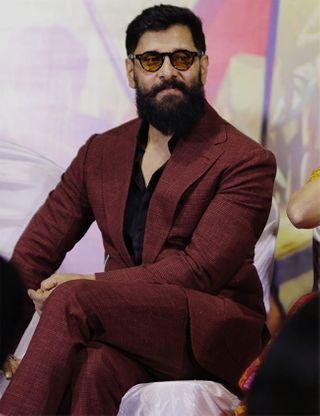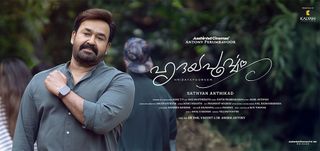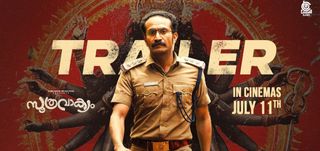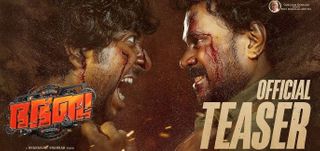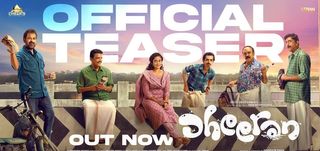
Malik Movie Review
Mahesh Narayanan's Malik is an epic film that tells the story of people in a coastal village, named Ramadapally, and their leader Ahammadali Sulaiman. The film starts with a long take in the house of its protagonists, Fahadh Faasil's Ali Ikka and his wife Nimisha Sajayan's Roslin. Many characters walk in and out of the frame while talking about their de facto leader who prepares for a Hajj journey and his mother. As Ali Ikka views it, it is a journey to the Hajj after stopping 'ungodly work' (thanks to subtitler Vivek Ranjit for this word). From Fahadh Faasil's demeanor, we realize early that Ali Ikka is a powerful and conflicted man. This perhaps explains why he seems calm even when there is often ceremonial chaos around him.
The film kicks into top gear as law enforcement stops Ali Ikka before he boards the plane under the TADA Act and then locks him up for 15 days. Later, we learn that the protagonist is a suspect for a past illegal act. The rest of the film is told in flashbacks, as other characters recall key events from their lives in Ramadapally with the Don Vito Corleone-like character of Fahadh Faasil. Sending the man into jail early in the film is an interesting writing decision, which makes way for a more fascinating style of narration. The leader of the story spends jail time with a seemingly conflicted mind. Through his demeanor alone, Fahadh shows Ali Ikka as a man who is unsure about whether he has led a good life. Full of flashbacks interspersed with the present day, the narration of Malik lets us and other characters explore the good and bad sides of the man.
The stretch in the middle of the film, involving flashbacks, is just as fascinating as the other moments. Here, we learn how a young Sulaiman works his way up to the top through a communal system of religion and politics in a coastal Kerala village, with his friends Vinay Forrt's David and Dileesh Pothan's Aboobacker. Sulaiman successfully makes the villagers feel that whatever he does in Ramadapally, with the help of the friends, is in their best interest. But almost every action of young Ali Ikka has an opposing reaction that creates friction between those within the community. This conflict forms the heart of the intense cocktail of politics, romance, religion and riots that is Malik.
What I liked about the film is how writer-director Mahesh Narayanan avoids genre conventions at pivotal points in it. Take an early sequence at a church where one of the characters is baptized, for instance. Most other filmmakers would use the scenario to stage an altercation, but Mahesh uses it to show how it brings two characters closer together. As a writer and filmmaker, Mahesh's focus in Malik is always on characterization and storytelling, not creating mass moments just for the big cheers from the audience. That does not mean that the movie lacks those moments. We see one of them in the trailer itself, whereas another such scene involves Fahadh jumping from one roof to the other while tracking an antagonist. It is a moment that reminds us of a stretch involving Robert De Niro's Don Vito Corleone from Francis Ford Coppola's Godfather Part II.
Much like the first two Godfather movies, and Mani Ratnam's Nayagan, Malik deals with politics and religion while telling what is essentially a deeply personal story. What makes it unlike the other epics is the fact that it is rooted in Kerala politics and religion. It shows how law enforcement and politicians use religion in Kerala to instigate violence and achieve their goals. It also does the unthinkable in telling the story of a hero in perhaps the most unconventional way.
The other things I like about Malik are its ensemble cast and the way Mahesh treats each of the characters. What a line-up of actors it has, each with a powerful moment or two. The protagonist is Fahadh Faasil as Sulaiman/Ali Ikka, and the actor is in good form here. What amazes me about Fahadh is how he embodies a character through his demeanor. It is a skill evident in his earlier films, too, especially Amal Neerad's Iyobinte Pusthakam. Nimisha Sajayan, too, puts in a powerful performance as Ali Ikka's wife. Vinay Forrt, Indrans, and Jalaja are all outstanding in small and bigger parts. But I loved Joju George as an IAS officer as well as Dileesh Pothan as a Machiavellian politician with a chameleon-like attitude, more than the other characters here. Even in a relatively small role, Joju is a towering presence. The same goes for Dileesh Pothan.
The film is a class apart technically as well. Sanu Varghese's cinematography, Sushin Shyam's music, and Santhosh Raman and team's art direction all add to the rhythms and moods of the film. If you were to nitpick, you might find many moments to be rather familiar, but as said, there is a deliberate attempt to break away from genre conventions here.






